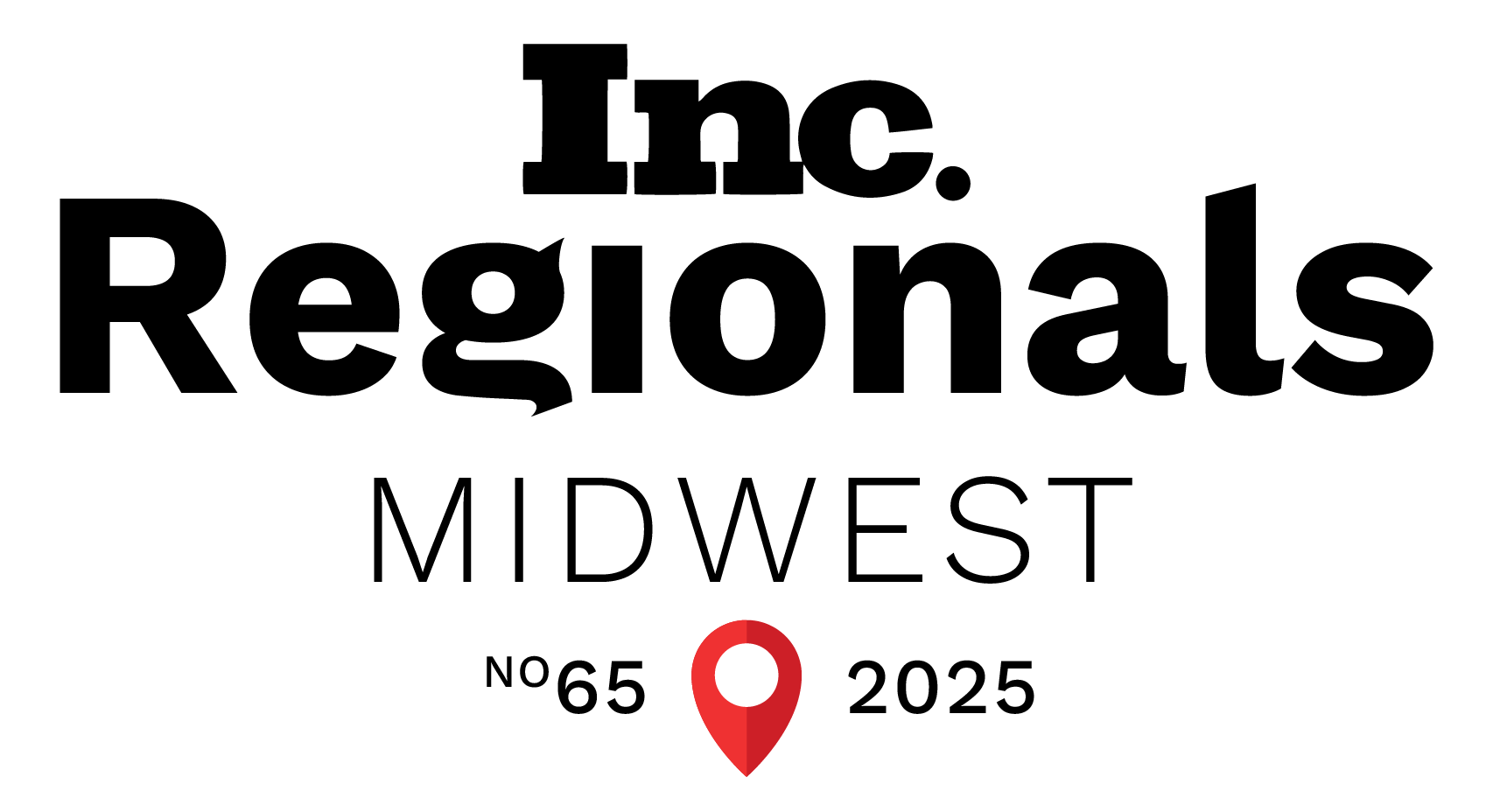
Church Website SEO

There are people in your community who are searching for answers. When someone feels compelled to find a church in today’s technology-driven world, they will most likely start with an online search.
Studies show that 33% of parishioners first learned about their church online, highlighting how a strong online presence acts as an open invitation to future church-goers in search of a spiritual home.
By working diligently to optimize your website via the power of search engine optimization (SEO), your church can ensure that individuals who need to hear the Word can find you.
On this page, we’ll cover what church website SEO is, the different types of church SEO services, and five key tips for increasing your church website’s SEO.
What Is SEO for Churches?
What’s the best way to reach people online? By being on the front page of their search results.
28.5% of searchers click on the first result of a search engine result page (SERP)—and hardly any ever stray from that first page of results.
Think about it. How often do you click on the second, third, or tenth page when you type something into Google (or your preferred search engine)? Probably not very often. The same goes for people who are searching for churches in your area.
One of your digital marketing goals should be for people to find you online, something you can accomplish through church website SEO.
As we mentioned earlier, SEO stands for search engine optimization. Church website SEO is the process of intentionally implementing digital marketing tools to optimize your church’s website. We’ll talk more about those tools a little further down the page.
Your church’s doors are open to those who wish to enter. But first, those people have to be able to find you. Nowadays, your church’s website is your new front door.
Before they come through your physical front door, potential parishioners need to be able to find your church online to decide if you will be a good fit for them. One way many people make this decision is by viewing virtual services online.
Increasing your church SEO makes it possible:
- For your church to be discovered online
- For those in need of the Gospel to find you, the church that can guide them towards God
- For those craving community to find a home in your church
Let’s talk about the importance of SEO in general, which can then be specifically applied to church SEO. The purpose of SEO is to:
- Increase your online visibility
- Attract qualified leads
- Build trust and relationships with your website’s visitors
- Increase traffic to your website
- Build your brand
- Contribute to your authoritative online voice, a factor that is important to SEO
When done correctly, church website SEO can do all six of these things. That’s why it’s important to work with a marketing agency that provides reputable, best-practice church SEO services so you can increase your SEO in ethical, responsible, data-driven ways.
Let’s get you the tools and knowledge you need to better understand which church SEO services your website needs.
Before we start, it’s good to know that SEO can be broken down into two sub-categories:
- On-page SEO
- Off-page SEO
Let’s dive into how both SEO techniques can increase SEO for church websites.
On-Page SEO
On-page SEO involves SEO tactics that are directly related to your website. This can be done by optimizing individual pages on your website, landing pages, and/or your homepage. Optimizing your website itself can increase qualified traffic to your pages.
Two of the best methods for increasing your on-page SEO are:
- Church SEO keywords
- User experience
Church SEO keywords are words or phrases that your target audience is searching for on search engines. Keywords lead to church SEO content, meaning you should be using these keywords and your content to:
- Answer your target audience’s relevant questions
- Establish yourself as a knowledgeable, authoritative voice on the subjects your audience is asking about
Please note that keywords cannot just be randomly thrown into your content. Successful SEO relies on keywords that have been carefully researched and naturally incorporated into your content.
Examples of strong church keywords may include:
- Churches near me
- What is Christianity?
- What is Lent?
- Service times
- And more
These are just a few examples; SEO keywords for churches are constantly changing, so new content must be created on a regular basis. This is one of the answers to a question we frequently hear: “Why can’t you just SEO my website?”
User experience—also referred to as UX—is the experience your users have while interacting with your church’s website. Creating a positive user experience helps build trust and contributes to deepening your relationship with your church-going audience. If your users can easily access the information they are looking for on your site, they will have a positive experience.
A large part of user experience is accessibility. You want to make sure that all website visitors have a positive experience, including:
- Prioritizing navigability of your church website
- Putting alt tags on pictures (the text that shows up when you hover over an image)
- Ensuring color contrast meets current standards
- Putting closed captioning on videos
- Ensure your text size, alignment, and organization all positively contribute to your website’s overall readability
Your website should be navigable from both the back-end and front-end. When Google and other search engines evaluate a website, they will follow your outline like a map. If your website is easy to navigate, you increase the odds of Google presenting your church’s site to searchers in your intended audience.
Other examples of on-page SEO include:
- Building your brand through graphic design
- Making your design consistent (which helps with UX)
- Publishing relevant content
- Updating outdated content
In summary, on-page SEO is made up of the steps you take to optimize your church’s SEO content and to design the website itself.
Off-Page SEO
Off-page SEO practices lead people to your website from other websites. Off-page SEO involves attracting your audience and building your brand in a way that guides people to your website. Off-site SEO includes:
- Backlink building
- Local church SEO
- Social media
- Guest blogs
Off-page SEO matters. A lot. Off-page SEO accounts for over 50% of ranking factor weight. A big part of off-page SEO is building your reputation with people, organizations, and other churches who are also seen as reputable by search engines.
For example, if the most popular church in your area references an article on your church’s website, that is considered a backlink. The other church is reputable because of the amount of online traffic they receive. By adding your link to their highly reputable website, they are telling their users and search engines alike that you are also a reputable source of information.
This is just one example of how off-site SEO is built.
Another extremely helpful instrument of off-page SEO is local SEO. Local SEO for churches is the practice of making sure the people in your local community can find your website. Local SEO takes several steps to intact, but once you’re done, you will find that people will flock to your church community and services.
Church SEO Services
Our team at Metric Marketing is here to help your church grow. With our church SEO services, we can optimize your website to increase visibility and let your community members know who you are. We can help you increase your church website SEO using the following church SEO services.
Content Strategy
Church SEO content is where your on-page SEO strategy comes to life. Content is your outlet for communicating with your audience. Through your voice and language, you can:
- Build trust
- Establish relationships
- Engage with your audience
- Be approachable and welcoming
Metric Marketing’s team of expert content writers can help make these relationships come to life through their writing. Our content team can write web pages, blogs, newsletters, and more, all while carefully implementing SEO keywords for churches throughout.
We write about topics relevant to your church and what your audience is searching for. It’s important for your potential parishioners’ questions to be answered; we can make sure that happens using church-centered SEO content writing.
Keyword Research
Church SEO keywords are the meat and potatoes of your content. Keyword research makes it possible for your content to make an impact via on-page SEO.
Metric Marketing’s SEO team has experience and expertise in conducting research of SEO keywords for churches. We have the resources and knowledge needed to:
- Gather relevant keywords for organic search
- Pinpoint competitor churches’ keywords
- Compile a list of keywords to incorporate in articles for your target audience
When it comes to church keywords, Metric’s SEO marketing team is the best—we may be biased, but it’s true! This is because your success matters to us.
We want you to reach community members who are thirsty for the Gospel and searching for answers. Through careful keyword research, we can gather keywords that will bring your church’s website to the top of your targeted audience’s search results.
As Paul, the Apostle wrote, “Let your conversation be always full of grace, seasoned with salt, so that you may know how to answer everyone.” Colossians 4:6
Now, let’s stay humble. We know that keywords are not the Word. But if we can help you find and use keywords that guide potential parishioners to your church, then we consider that a pretty good start.
On-Page Optimization
As discussed before, on-page optimization is the process of optimizing your church’s website directly on your site itself. Our team here at Metric Marketing provides on-page church SEO services to keep your website up-to-date and exceed SEO expectations.
In the first part of our process, we will conduct a church SEO audit. This means we will look through your website on the back-end as well as your website design. And if you don’t already have a website, it’s no problem! Our developers can build a custom-made site just for your church!
When we audit your website, we’ll be evaluating things like:
- Backlinks
- Code
- Design
- User experience
- Whether it meets ADA and SEO standards
- Content
- Overall website health
Once we perform a church SEO audit, we can either optimize or rebuild your church website! We want to make sure that your website is ready for full implementation of church website SEO.
Off-Page Optimization
Metric Marketing deeply understands the importance of off-page optimization. We know which key performance indicators (KPIs) to pay attention to in order to utilize the best tactics for website optimization.
We want your off-page SEO to thrive, thus ensuring that both search engines and your audience recognize your credibility. That’s why our off-page SEO services help promote:
- Long-term website health
- Data-driven SEO
- Audience growth
- Website optimization built on reputable sources
Off-page optimization is key to getting your church website in front of to the people who need to see it. We can help you build trust with your community members using off-page SEO tactics.
Technical SEO
Technical SEO is a must for your church website SEO. It shows search engines that your church has taken the necessary steps to make your website both more secure and accessible for all users.
Technical SEO improves your search ratings, but it’s not quite as simple as just “doing” technical SEO.
Technical SEO includes actions like:
- Making a responsive website, meaning your website can be accessed through a smartphone and automatically adjust its format
- Ensuring quick load times for your website
- Registering your site with Google Search Console
- Securing your website with a secure sockets layer (SSL); in non-digital-marketing terms, this is the major difference between http:// and https://
Whew, that’s quite a list. Metric’s expert SEO team members have in-depth knowledge on how to ensure your website meets these standards so that it ranks well with search engines.
Local SEO
“Just as a body, though one, has many parts, but all its many parts form one body, so it is with Christ.” 1 Corinthians 12:12
Community members need to know where your church is. According to the Pew Research Center, about 49% of regular worshipers have watched virtual church services.
Community members need to know where your church is. According to the Pew Research Center, about 49% of regular worshipers have watched virtual church services.
The way parishioners participate in church services is changing, but that doesn’t change the importance of letting your community members know where they can find both your website and your in-person worship services.
Our team at Metric Marketing can help you with local church SEO, which will change the way audience members can access your local information.
Your local listings—which build your local church SEO—tell search engines to present you to an audience searching in your area. That means that instead of “competing” with churches all across the country, you can instead optimize your website so that your immediate community can more easily find you.
We have experience creating Google Business Profiles for churches. We can also establish you as a business on other major search engines, such as Bing and Yahoo!.
A Google Business Profile is the information that pops up on Google when someone searches for your specific church or a church in the area. Once your Google Business Profile has been verified, your audience will be just one click away from:
- Contacting you by phone
- Getting instant directions
- Seeing reviews
- Going straight to your website
- Viewing a map of where you are located
- Learning your hours of operation
- Having access to a questions and answer forum
- Seeing photos of your establishment
When optimizing or building your website, we will include important information that will positively contribute to your local SEO, including your NAP (Name, Address, Phone number). Placing your address throughout your website will help people find your church. Consistent NAP information on every page is key!
Setting up a Google Business Profile page for your church is the first step in building your local church SEO, one that will lead to a higher ranking in church search results in your area. Metric Marketing provides local SEO services for churches to optimize your website and get you in front of the eyes of your local community!
5 Tips for Getting Your Church Website SEO Started
Optimizing your church’s website is an ongoing process, one that takes time, commitment, and patience. As you know, faith cannot be built without a firm foundation in the Gospel. Nor can a house stand when it is built on sand. Similarly, SEO must be built on a firm foundation and then continuously maintained.
Starting your SEO journey may seem like a lot—to say the least. So here are five steps you can take to start building that foundation and optimize your church’s website!
1. Claim Your Google Business Profile
Creating your church’s Google Business Profile is one of the most essential tasks to complete when focusing on your church website SEO. Local SEO is critical to optimizing your site and making yourself available to your community members.
Input consistent information into listings and directories, including your church’s:
- Physical address
- Phone number
- Service times
- Detailed information
- Photos
Setting up a Google Business Profile is free. Doing so will only help your church website SEO, so get started today!
2. Publish Church Content to Your Website
Providing relevant content keeps your website up-to-date and spotlights your authoritative voice online. You can create content such as:
- Videos talking about your services
- Blog posts
- Infographics
- Social media posts
- Testimonies from congregation members
- Email marketing materials
- Online and printed newsletters
Content is the way that you express your message to your current and future church members. Keep the content coming to ensure both audience members and search engines remain up-to-date.
3. Do Some Simple Research Into Church SEO Keywords
To know the relevant content you need to be creating, be sure to use focus keywords that align with what your audience is searching for. Google Analytics is a great resource for keyword searching.
Researching and using the best keywords can feel overwhelming. Luckily, our SEO experts have lots of experience discovering the keywords that will optimize your content and website.
4. Start a Blog for Your Church
We highly recommend creating a church blog. In your blog, you can talk about:
- Past church services
- Current events from a Biblical standpoint
- Community events
- Information about your denomination
- Faith topics
- Bible studies
- And more!
A regularly updated blog keeps your website fresh, a trait that search engines look for when ranking your website.
5. Create a Google Analytics Account to Track Traffic
Here at Metric Marketing, we believe that all digital marketing decisions should be data-driven. By creating a Google Analytics account, you can track data about your website. This will ultimately help you make decisions about your digital marketing campaign.
Get Your SEO Off the Ground With Metric Marketing
Are you ready to start your church website SEO journey? Metric Marketing is here to meet all of your church’s SEO needs!
Call us today at (734) 404-8714 or fill out our online contact form. We look forward to hearing from you!
If you have questions, don’t worry, you’re not alone. Check out our SEO Frequently Asked Questions page for additional SEO insight. In addition to churches, Metric Marketing also specializes in software, biotech, and law SEO services.
So, you have a question?
We have an answer!
Ready to Inquire?




